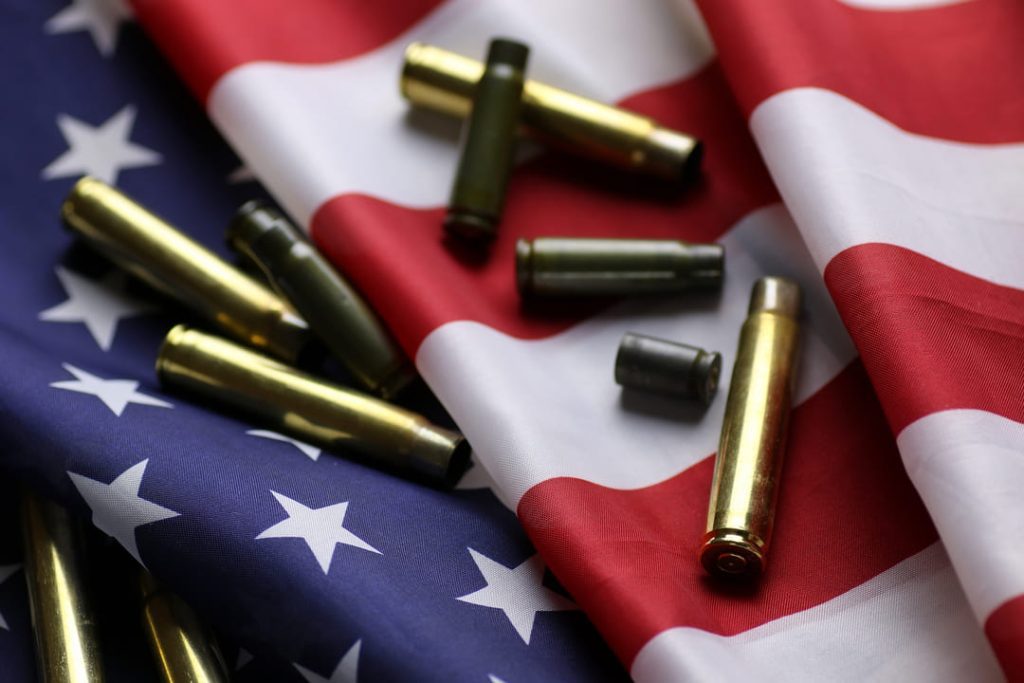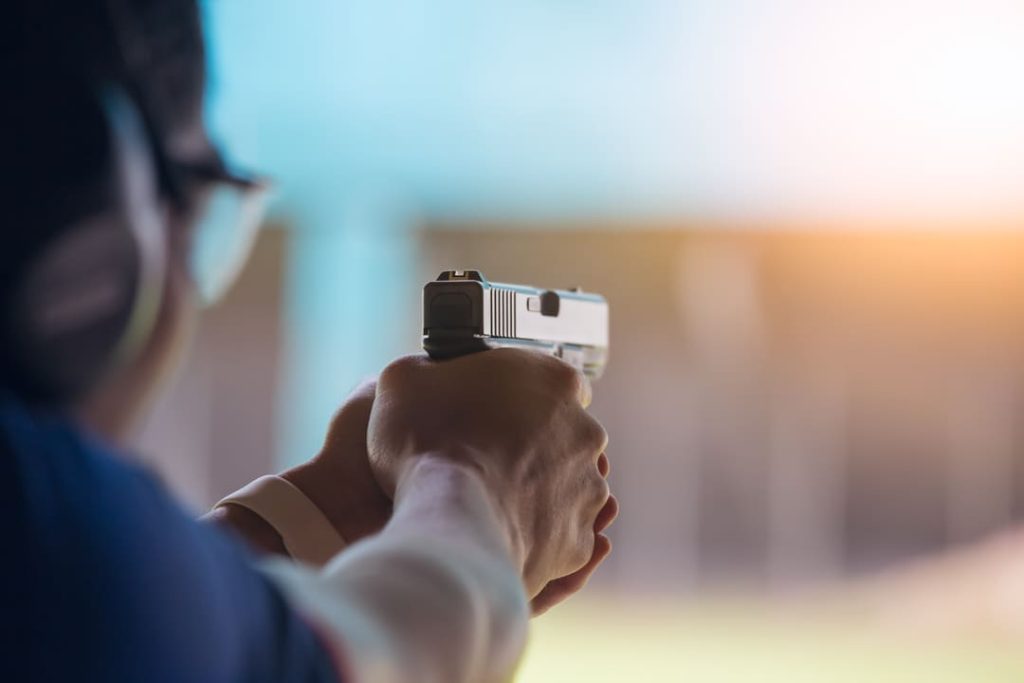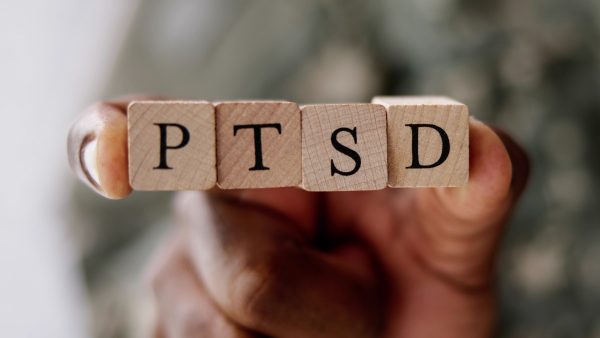Looking for Expert-Level VA Claim Answers?📱Call Us Now! 737-295-2226
“Can you own a gun if you have PTSD?”
Yes.
Post-traumatic Stress Disorder (PTSD) doesn’t automatically disqualify you from owning a weapon. In fact, many veterans, including those with PTSD, go hunting each year.
In this post, I’ll examine the law and answer common questions about this often misunderstood topic of PTSD and gun ownership.
Let’s take a look.
Summary of Key Points
-
You can own a gun if you have PTSD as long as you haven’t been determined to be mentally defective or involuntarily committed to a mental institution.
-
Your gun ownership rights could be affected by a PTSD diagnosis if the VA rates you as incompetent and assigns you a fiduciary.
-
Your gun ownership rights could be restored if you meet very specific criteria.
-
The VA has no legal authority to take away your gun ownership rights.

Table of Contents
Can You Own a Gun if You Have PTSD?
Yes. Having a Post-traumatic Stress Disorder (PTSD) diagnosis doesn’t affect your ability to own a gun unless:
- A lawful authority such as a court, commission, or board has determined you’re a mental defective*, OR
- You’ve been involuntarily committed to a mental institution*. Voluntarily admitting yourself doesn’t affect your gun ownership rights OR
- The VA has determined you’re mentally incompetent and assigns you a fiduciary.
This is according to Federal Law.
* “Mental defective” and “committed to a mental institution” are both legal terms I define below.
What’s a “Mental Defective?”
According to Title 18 of the US Federal Code, a mental defective is someone who:
- Is a danger to themself or others, OR
- Lacks the mental capacity to contract or manage their own affairs (contract means hire someone to manage your affairs) OR
- Is found insane by a court in a criminal case, OR
- Is found incompetent to stand trial, or is found not guilty based on a lack of mental responsibility
Only a lawful authority can “adjudicate” you as a mental defective.
This means that if a court, government commission, or board decides you meet the definition above, then you’re legally considered a mental defective.
“Committed to a Mental Institution” Defined
This term has a two-part definition:
- “Mental institution” is any facility with licensed professionals on staff who can diagnose mental illnesses. This can include:
- Mental health facilities
- Mental hospitals
- Sanitariums
- Psychiatric facilities
- Psychiatric wards in general hospitals
- “Committed” means:
- Being involuntarily placed in one of the facilities above for reasons such as:
- Mental illness
- Drug use
- Other substance abuse
“Committed” DOES NOT include being committed for observation or a voluntary admission to a mental institution.

What if the VA Says You’re Mentally Incompetent?
Having a rating for PTSD could affect your gun rights if the VA also:
- Decides you’re mentally incompetent, AND
- Assigns you a VA fiduciary
The VA defines mentally incompetent as “a person who because of injury or disease lacks the mental capacity to contract or to manage his or her own affairs, including disbursement of funds without limitation” (notice this definition is nearly word for word the same as the definition for “mentally defective” in the US Federal Code).
Veterans who are this severely disabled are often assigned a fiduciary.
If the VA rates you as mentally incompetent and assigns you a fiduciary, they’re required by federal law to send the Federal Bureau of Investigation (FBI) a “prohibiting record.”
Once that happens, your name is entered into the National Instant Criminal Background Check System (NICS).
You can’t buy, own, or transport a gun if your name is in the NICS.
Can You Have Your Gun Ownership Rights Restored?
Yes. If you’ve lost the right to own a gun because of your PTSD, you can have your rights restored if:
- You receive “relief” through a federal firearms disabilities program. This basically means the Bureau of Alcohol, Tobacco, and Firearms (ATF) or other Federal agency has granted you an exception to the law, OR
- Your adjudication as a mental defective or your commitment to a mental institution is set aside or expunged, OR
- You are fully released from mandatory treatment, supervision, or monitoring OR
- You no longer suffer from your mental health condition, OR
- You’re fully rehabilitated, OR
- You weren’t given a proper hearing by the Federal agency with proper jurisdiction.

PTSD and Gun Ownership Frequently Asked Questions (FAQs)
Can a person with PTSD get a concealed weapons permit?
Yes, having PTSD doesn’t prevent you from concealed carry in states where concealed carry is legal.
Can you own a gun if you have a dishonorable discharge?
No. According to Title 18 of the US Federal Code, you can’t own a gun if you were dishonorably discharged from the armed forces.
Can a veteran with PTSD own a gun?
Yes, as long as you haven’t been determined to be mentally defective or involuntarily committed to a mental institution.
Can I lose my gun rights if I’m rated 100% for PTSD?
It’s possible. If you’re also rated mentally incompetent and assigned a VA fiduciary, the VA will send a “prohibiting record” to the FBI, which could affect your ability to buy a gun.
Are there any states where I can’t own a gun if I have PTSD?
No, there are no states where PTSD alone keeps you from owning a gun. Almost all states have the same or slightly more restrictive laws as the federal government.
Can I own a gun if I have a history of depression?
Unless you meet the definitions outlined in this post, having depression doesn’t make it illegal for you to own a gun.
Can the VA take away my gun rights?
No, the VA has no authority to take away your gun rights. However, if they decide you’re mentally incompetent and assign you a fiduciary, they’ll notify the FBI, who will then add your name to the National Instant Criminal Background Check System (NICS), which prevents you from buying, owning, or transporting a gun.
About VA Claims Insider
- VA Claims Insider is a highly rated, veteran-owned and operated business.
- 25,000+ disabled veterans served in our membership programs since 2016.
- Employs 200+ teammates; comprised of 44 veterans as well as military spouses.
- 4.7/5.0 average rating out of 5,000+ total reviews; over 4,000 5-star reviews.
You DESERVE a HIGHER VA rating.
Take advantage of a VA Claim Discovery Call with an experienced Team Member. Learn what you’ve been missing so you can FINALLY get the disability rating and compensation you’ve earned for your service.

Clay Huston
Clay Huston is a former U.S. Army Reserves Blackhawk Pilot and officer. Clay enlisted in the Army in 2013 and was commissioned as a 2LT in 2017 after earning a business degree from the University of Illinois Champaign-Urbana.
Since separating from the military, Clay has pursued a career as a writer. He also runs the nonprofit notfatherless.org, which fundraises for Children’s Homes in Mexico.
Content Reviewed by: Quality Assurance (QA) Team
The Quality Assurance (QA) team has over 36 years of combined experience in meticulously researching accuracy and fact-finding information. The Quality Assurance team’s expertise includes specialized experience in the VA Claims Adjudication processes, applicable VA laws, and regulations. Reviews were structured around considerations of the intended audience and examined the content’s relevance, accuracy, structure, and clarity. Changes suggested by the QA team were incorporated by content writers and creators.


